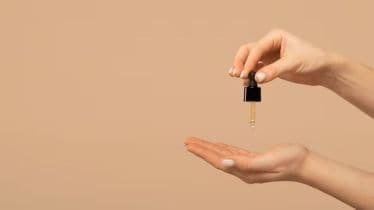If you are obsessed with your skincare routine and the products associated with it, then you definitely must have heard about retinol. It is a form of Vitamin A that is often included as an ingredient in skin creams, lotions and serums.
Although products containing retinol are available over the counter, the higher concentrations are usually available by prescription.
What is the impact of retinol on skin?
According to health experts, retinol can be beneficial for various types of skin conditions like acne, aging support, sun damage, etc. Retinol enhances skin cell production which helps in unclogging the pores.
Retinol also helps in exfoliating the skin and it also increases collagen production. This property helps in reducing the appearance of fine lines and wrinkles, giving your skin a fresher, plump look.
It is important to remember that retinol makes your skin more sensitive to sunlight so be sure to use sunscreen. You should avoid the sun as much as you can while you use retinol products.
Who can use retinol?
Studies show that topical retinoids can help treat acne and acne scars and stretch marks. It also has anti-aging effects. However, retinol isn’t for everyone. You use it with caution if you have sensitive or dry skin. Retinol can be good for the following conditions:
- Acne
- Acne scars
- Hyperpigmentation
- Large pores
- Wrinkles
How to use retinol?
- If you are using retinol for the first time, do a patch test first.
- Clean your skin with a gentle cleanser and pat it dry.
- Don’t scrub your skin while using retinol products.
- Apply retinol in a thin layer to your entire face.
- You should use a dose that’s about the size of a pea.
- For the first couple weeks of treatment, apply retinol only every other day.
- Finish with a facial moisturizer that doesn’t clog your pores.
- You might experience redness, itching or burning initially, but these symptoms go away as your skin gets used to the treatment.
What are the side effects of retinol?
Usually, the side effects from topical retinol treatment are temporary. They include:
- Dry, irritated skin.
- Itching or burning.
- Redness, peeling, flaky or scaly skin.
- Sunburn.
These side effects should gradually go away as your skin gets used to the new treatment. Consult a doctor if you develop a severe reaction and don’t see significant results after using an over-the-counter retinol product for a few months.
